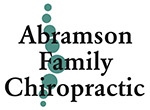Neck Pain and Range of Motion Improved with Manual Scapular Repositioning
Among a group of 69 patients with both neck pain and scapular dyskinesis, researchers observed that correcting scapular position resulted in both improvements in neck pain and cervical range of motion. The findings demonstrate how dysfunction in one area can contribute to or even cause pain and disability in an adjacent region. Journal of Bodywork and Movement Therapies, July 2023
Mindfulness Yoga May Help Manage Depression
For patients with major depressive disorder, a systematic review that included nine studies found that the combination of yoga and mindfulness can have a positive effect on depressive symptoms and may have a role as part of a multimodal approach for managing the mental health condition. BMC Complementary Medicine and Therapies, September 2023
Take Vitamin D Daily or Weekly?
Following a review of data from 116 clinical trials, researchers report that ingesting a week’s worth of vitamin D supplements all at once may be more effective for improving vitamin D levels than taking a daily dose. Of course, before taking any supplements, consult with a doctor who is familiar with your health history. Frontiers in Nutrition, August 2023
Blue Light-Filtering Glasses May Not Help
Blue light-filtering glasses have been marketed to heavy screen users to protect their eyes, but a systematic review that included 17 trials found the use of such glasses does not reduce eye strain, enhance eye health, or improve sleep quality in the short term. Cochrane Reviews, August 2023
Caffeine Intake May Not Raise Sleep Apnea Risk
While it’s widely accepted that caffeine can contribute to sleep-disordered breathing, a recent meta-analysis found no association between caffeine or coffee intake and an increased risk for obstructive sleep apnea. European Journal of Nutrition, September 2023
Aerobic Exercise Helps Manage Non-Specific Neck
Non-specific neck pain a term used to describe neck pain that occurs in the absence of an underlying disease or pathology, like an infection or osteoporotic fracture. A recent systematic review found that engaging in moderate-intensity aerobic exercise—such as cycling, brisk walking, aerobics, stationary bike, treadmill running, circuit training, and/or swimming—three times a week can improve both pain and function in patients with non-specific neck pain. Doctors of chiropractic frequently recommend aerobic exercise in addition to patient-specific exercises as part of management for musculoskeletal conditions, including non-specific neck pain. Healthcare, January 2024
